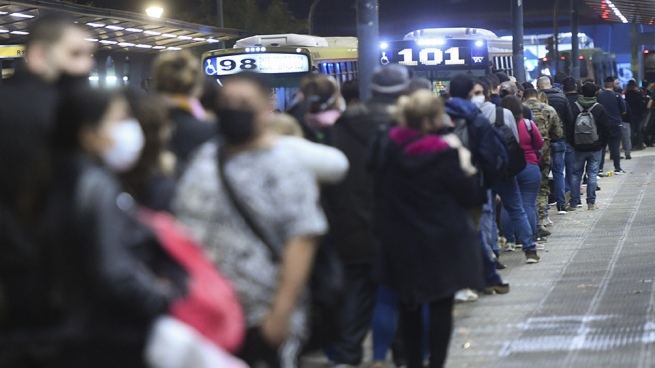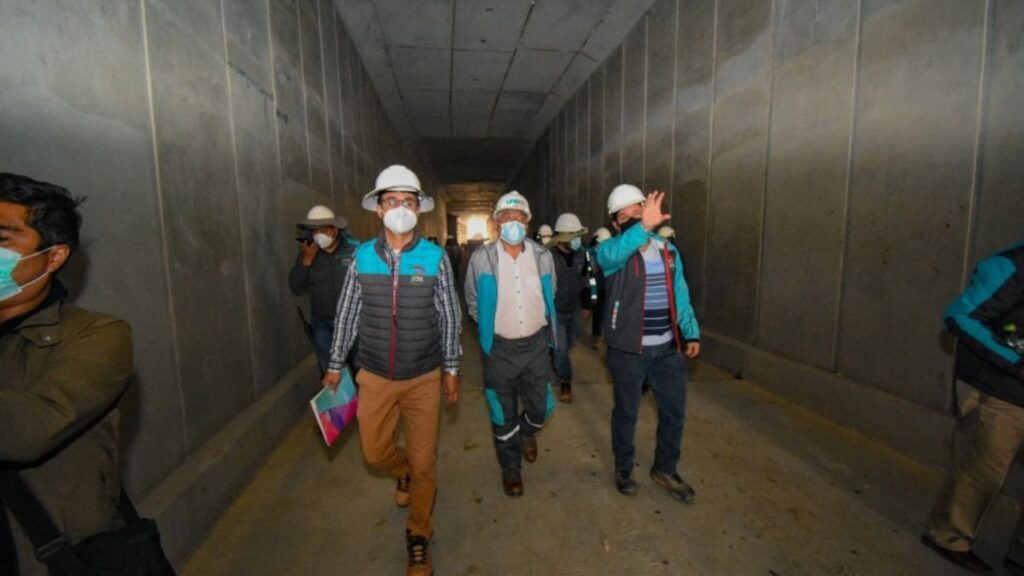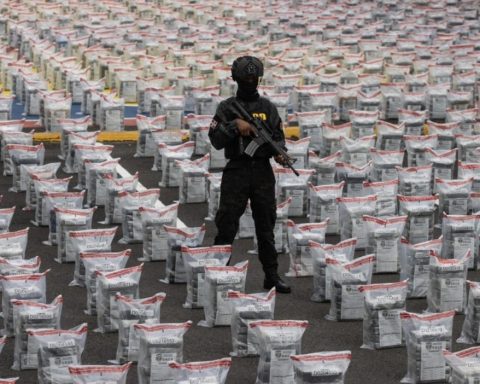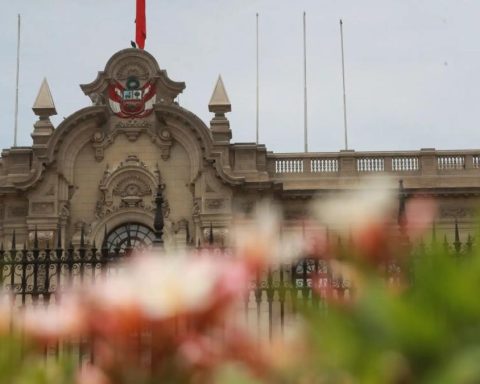Secretary of Transportation, Giulian Diegoor, he maintained this Tuesday that the city of Buenos Aires (CABA) “must recover its full autonomy” to regulate and control the bus lines “exclusive to their territory”, and assured that their position is not “unilateral”, but has already been proposed by “several governors and mayors”.
In dialogue with Télam, Giuliano specified that the transfer of bus lines to the Buenos Aires jurisdiction “only involves the 32 lines that circulate within CABA” out of a total of 135; and affirmed that it is about “recomposing a federal equity, enforcing a law that dates from 2012.”
The official assured that the issue “is being analyzed within the Ministry of Transportation,” and added that “a Work Group will be formed with the authorities of the City, to advance with the transfer.”
“It is not a unilateral question, but it is something that has been discussed with governors and municipalities, responding to the claims that they have been making for a long time, for example, the cities of Córdoba, Rosario and Santa Fe.”Giuliano Diego
Giuliano sent a note to the head of the Buenos Aires Government, Horace Rodriguezand his chief of staff, Philip Michaelinviting them to discuss the issue.
The invitation, said the national official in the letter, has “the purpose of coordinating a working meeting for the analysis of the competences in terms of regulation, control, routes, frequencies and rates regarding public passenger transport services by motor vehicle carried out entirely in the territory of the Autonomous City of Buenos Aires, with the participation of technical teams from both jurisdictions”.
Sources from the Buenos Aires Government confirmed to Télam the receipt of the note sent by Giuliano and anticipated that they will coordinate the date of the meeting with the Secretary of Transportation Management “to see the points on the table and what it is about.”
In the dialogue with Télam, the national official warned that “everything will be done within a dialog frame“, because he stressed that “it is essential to dialogue and resolve things in the best way”.

He also explained that “it is not a unilateral issue, but rather it is something that has been discussed with governors and municipalities, responding to the claims that have been made for a long time, for example, by the cities of Córdoba, Rosario and Santa Fe.”
In that sense, he reiterated that “it is only about the 32 lines that circulate within the city of Buenos Aires, not those that are interjurisdictional, which continue to have the contribution of the National Treasury.”
“And cWith this, what we do is return autonomy to the City governmentso that it can handle the design of its own transportation system,” the official said.
He remarked that “in this way the city of Buenos Aires is equated with the rest of the provinces, which support their own internal transport”, but pointed out that “as regards those involving one or more jurisdictions, the National government with subsidies “.
As an example, Giuliano pointed out that “the province of Buenos Aires has 242 lines that are exclusively internal and these are subsidized by the provincial treasury”and stressed that it is what is intended “to happen with the 32 that circulate internally through the City.”
“The remaining 103 lines, which are inter-jurisdictional, continue to be subsidized by the National Treasury,” said the secretary.
Funds
Official sources told Télam that what the national State allocates for the subsidy of the passage in the 32 exclusive lines is approximately $13 billion which, if the transfer is agreed upon, would be added to the Compensation Fund with which the transport of passengers from the rest of the country is assisted.
“The difference in costs, of what is paid in CABA, in relation to the interior, is very large. They are $18 here, while in Corrientes they pay $60; not to mention in Bahía Blanca where you pay $70 and so on. And what Minister Alexis Guerrera asked us is that we must recover federal equity. Federalism is fairness and today that fairness does not exist,” Giuliano remarked.
He also highlighted that “in 2019 CABA financed 81% of its transport, in 2021 it financed 44%”, and pointed out that what is intended “is only to comply with Law 26,740 of 2012, where competition was established of CABA on its transportation”.
This is not a unilateral position. With @alexisguerrera We always bet on the dialogue of federal reflection, such as the one already proposed by several governors and the Mayors of Córdoba, Rosario and Santa Fe.
— Diego Giuliano (@DiegoGiuliano) February 7, 2022
In that sense, he specified that “only the Subway was transferred in 2012, but collective transport was never continued.”
In its article 2, Law 26,740 established that “it corresponds to the city of Buenos Aires to exclusively exercise the competence and supervision of public passenger services, at the underground and pre-metro levels; of automotive and tram transport whose provision corresponds to the territory “Porteño.
The transfer of the subway and the premetro from the national orbit to the Buenos Aires orbit was signed on January 3, 2012 by the then Minister of Economy, Amado Boudou, and Head of Government, Mauricio Macri, who ordered an increase in the rate the following day. of the service of 127.27% (from $1.10 to $2.50).
For his part, Giuliano argued that “the transfer will also allow CABA to recover its autonomy and what refers to the routes within its jurisdiction and its regulation and control, both of routes, as well as the cost of the ticket and others.”
The official maintained that “the city of Buenos Aires must recover its full autonomy in relation to the regulation and control of its own transport, defining modalities, routes and rates of the TUP (Urban Passenger Transport) lines that are exclusive to its territory. “.
“This is not a unilateral position,” continued the secretary, who clarified that “with Alexis Guerrera we are always committed to a federal reflection dialogue, such as the one already proposed by several governors and the mayors of Córdoba, Rosario and Santa Fe.”

















